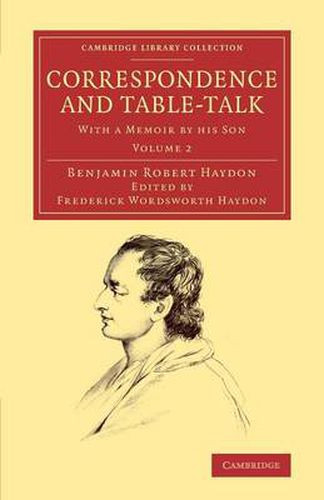Readings Newsletter
Become a Readings Member to make your shopping experience even easier.
Sign in or sign up for free!
You’re not far away from qualifying for FREE standard shipping within Australia
You’ve qualified for FREE standard shipping within Australia
The cart is loading…






Artist, diarist, and devotee of the Elgin Marbles, Benjamin Robert Haydon (1786-1846) is best known for his large-scale paintings, such as Christ’s Entry into Jerusalem and The Raising of Lazarus. After he entered the Royal Academy in 1805 as a student of Henry Fuseli, his forthright views and combative manner fuelled a feud with the institution and perceived enemies. His unshakeable belief in his own genius and his unwillingness to compromise his artistic standards drew him ever further into debt, which ultimately contributed to his suicide. As a writer, Haydon’s acute eye for the humorous is demonstrated throughout his correspondence and diary. In this two-volume work, first published in 1876, his son Frederick Wordsworth Haydon (1827-86) brings together letters and extracts from his father’s journals. Volume 2 contains selected letters, including those to and from Keats and Wordsworth, along with a host of witty and erudite journal extracts.
$9.00 standard shipping within Australia
FREE standard shipping within Australia for orders over $100.00
Express & International shipping calculated at checkout
Artist, diarist, and devotee of the Elgin Marbles, Benjamin Robert Haydon (1786-1846) is best known for his large-scale paintings, such as Christ’s Entry into Jerusalem and The Raising of Lazarus. After he entered the Royal Academy in 1805 as a student of Henry Fuseli, his forthright views and combative manner fuelled a feud with the institution and perceived enemies. His unshakeable belief in his own genius and his unwillingness to compromise his artistic standards drew him ever further into debt, which ultimately contributed to his suicide. As a writer, Haydon’s acute eye for the humorous is demonstrated throughout his correspondence and diary. In this two-volume work, first published in 1876, his son Frederick Wordsworth Haydon (1827-86) brings together letters and extracts from his father’s journals. Volume 2 contains selected letters, including those to and from Keats and Wordsworth, along with a host of witty and erudite journal extracts.